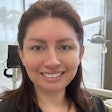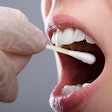
Many hygienists are looking to improve their career. For some, that means staying in the operatory looking for new ways to exceed expectations. For others, it means leaving and trying something new. Both ideas are good ones!
As a registered dental hygienist (RDH), I am aware that there are skills you can acquire to assist you in finding higher satisfaction in your role in clinical hygiene. However, I am also aware that those same skills can be applied outside of the operatory.
As an RDH who has found herself in a career both in and out of the operatory, there are a few things that really helped my career path. In retrospect, most of my skills were developed in the four walls of the operatory, and I now know that many of the abilities that we have as RDHs are helpful for nonclinical employment. Fostering these skills is what is important.
Perhaps you are a new grad not looking to leave but are looking for ways to build a rich and fulfilling career. Maybe you have found yourself in a rut and are looking for a way to get out of the burnout that you are feeling. Or you are sick of hygiene altogether and are ready to wave the white flag and break out into something new? A fulfilling career is about growth and finding ways to continuously improve.
To the new grad
You’re new and you're excited! There is so much in front of you and you want to do more. Keep this mindset, because all the experience you can acquire at this time can help you down the road.
Some of the best hygienists I know have learned a lot about the business side of an office and how insurance works, because they paid attention to the office managers and clinical coordinators. These are extremely valuable skills that can carry you into other areas if you're ever interested in leaving clinical hygiene.
Always value the other positions in the practice -- they're all important and you can learn a lot. Furthermore, become an asset for more than just your clinical skills. Don’t just take the continuing education courses to check the box on your license renewal. Seek out the ones that can provide you with tools and knowledge about technology that can bring value back to the practice.
At the end of the day, my No. 1 tip is to simply pay attention. Look at the careers of those who are happy and fulfilled and learn what they did to get there. You can also learn a lot from those who aren’t happy, so be sure to look at that as well.
To the hygienist who is feeling a little burned out
For some, burnout comes early. For others, it may come later. And for the lucky few, it never happens.
But before you abandon ship and say that hygiene isn’t for you, try taking a good professionalism-based course. It can be hygiene or non-hygiene related. Burnout can be something you can shift away from by resetting your mindset, and these courses can be really helpful!
The truth is, most career paths feel this same way. Many professionals experience a lack of appreciation, a sense of being overwhelmed, and so on. By taking a course, it can provide you with tools to evaluate what you love about your job, the things you hate, and ways for you to make impactful changes to improve your career.
Ongoing education is part of investing in yourself and is one reason I recommend to new grads to take courses outside of “how to better treat your perio patients.” Of course, those types of courses are important as well, but having a sound foundation on how to navigate the highs and lows of hygiene can provide you with an amazing perspective. Courses can also support a future outside of clinical hygiene, if that is the direction you are thinking of eventually going.
To the hygienist who is just done
I get it, you’ve been doing this a long time (or maybe not so long) and it just doesn’t bring you any joy. Please know that there are a lot of opportunities out there for you, but it takes some additional work to get there.
I would encourage you first to start networking. Depending on what you think you are interested in doing, begin having discussions with those who are in positions that you believe you want.
Find the pros and cons, and make sure you get the full scope of the expectations in that field. The last thing you want to do is leave a job that you know well for one that doesn’t suit you.
Go to trade shows, find products that you’ve loved using, and create a relationship with the company. A company that sells dental products loves to have the benefit of having someone with dental experience who has used it in practice.
I would also encourage you to apply to all the jobs -- even the ones that want two-plus years of sales experience. Because guess what? You have it!
You have been speaking to patients about case acceptance for a long time, and sales is much less about selling and more about educating. There are also jobs for insurance reviewers, management, consulting, speaking, and great jobs in education in which your real-world experience can be hugely beneficial.
Whether you are a new grad, someone looking for more, or a hygienist who is done, there’s a lot out there for you. Improving your career path is completely within your control -- it is just about taking the first step to get there. My hope for this is to help inspire other hygienists to chase the things they really want and to provide some confidence in the skills that you already have.
Kristin Goodfellow is a practicing RDH in West Virginia, where she has served as a preventive specialist for over 10 years. She completed her dental hygiene degree at Allegany College of Maryland and obtained a Bachelor of Arts in communication from West Virginia University. Goodfellow is the chief clinical officer for OraCare. She is also a sought-after speaker and serves on Cellerant’s Best in Class hygiene board and is a hygiene liaison for several dental practices in her home state.
The comments and observations expressed herein do not necessarily reflect the opinions ofDrBicuspid.com, nor should they be construed as an endorsement or admonishment of any particular idea, vendor, or organization.



















